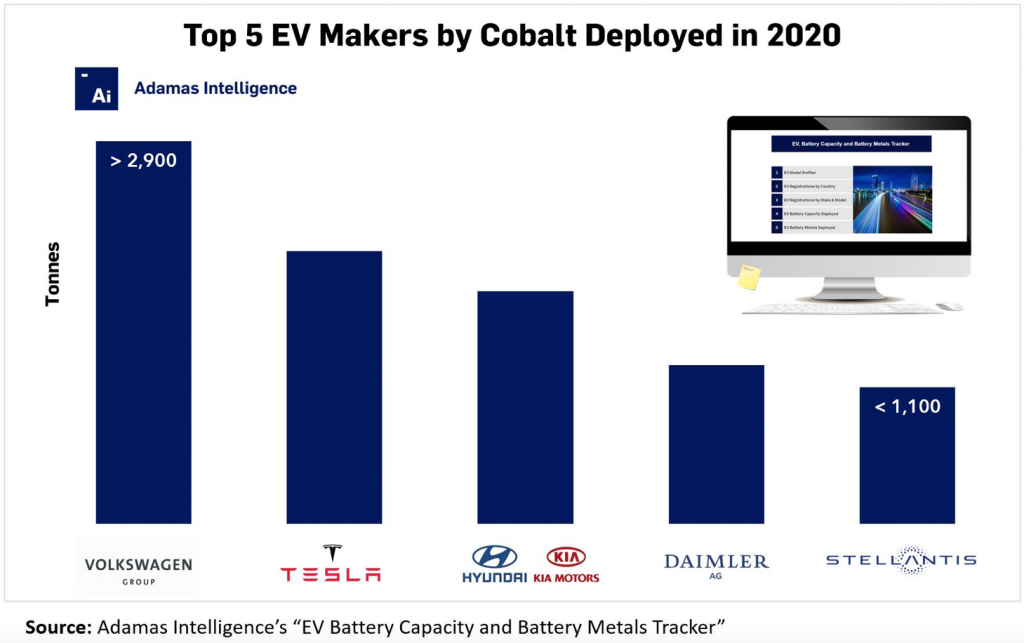
In 2020, a total of 18,750 tonnes of cobalt were consumed in the batteries of newly-sold passenger EVs globally, an increase of 29% year-over-year, a new report by Adamas Intelligence reveals.
According to the market analyst, the increase in cobalt use was the result of a surge in passenger BEV and PHEV sales in the second half of the year, particularly in China and Europe.
When it comes to manufacturers, Adamas found that the top five EV makers by cobalt deployed onto roads in 2020 accounted for 49% of the global total.

Volkswagen Group led the pack with nearly 3,000 tonnes of the blue metal deployed in the batteries of new VW, Audi, Porsche, and SEAT electric vehicles, as well as those manufactured with joint venture partners in China.
“In total, VW-brand EVs were responsible for 42% of the group’s cobalt deployment in 2020, followed by Audi with 35%, Porsche with 15% and all others combined with 8%,” the report reads.
The German carmaker was followed by Tesla with more than 2,000 tonnes of cobalt deployed onto roads in the batteries of new Model 3, Model Y, Model X and Model S.
“In total, the Tesla Model 3 was responsible for 63% of Tesla’s cobalt deployment in 2020, followed by the Model Y with 16%, the Model X with 13% and the Model S with 9%,” Adamas’ data show.
In third place was Hyundai Kia, with approximately 1,800 tonnes of cobalt deployed in new Hyundai and Kia brand electric vehicles, as well as those made with joint venture partners in China.
“In total, Hyundai brand electric vehicles were responsible for 57% of the group’s cobalt deployment in 2020, followed by Kia with 42% and Chinese joint ventures with 2%,” the review states.
In fourth place was Daimler with more than 1,200 tonnes of cobalt deployed onto roads in 2020 in the batteries of new Mercedes Benz and Smart electric vehicles, and in fifth place was Stellantis with nearly 1,100 tonnes of cobalt deployed in the batteries of new Peugeot, Opel, Vauxhall, Citroen, DS, Fiat, Chrysler, Jeep and Chinese JV-made electric vehicles.
